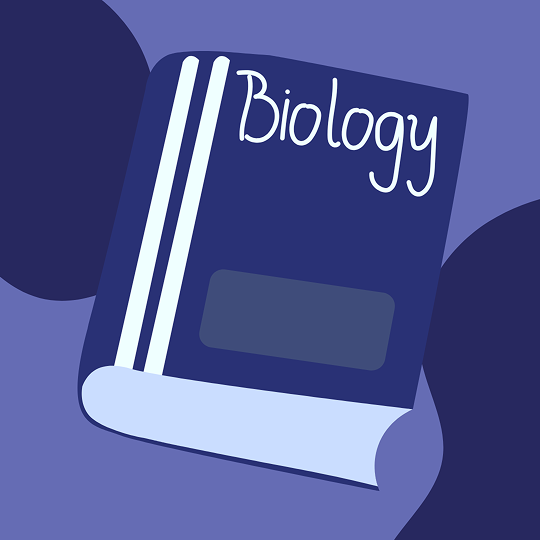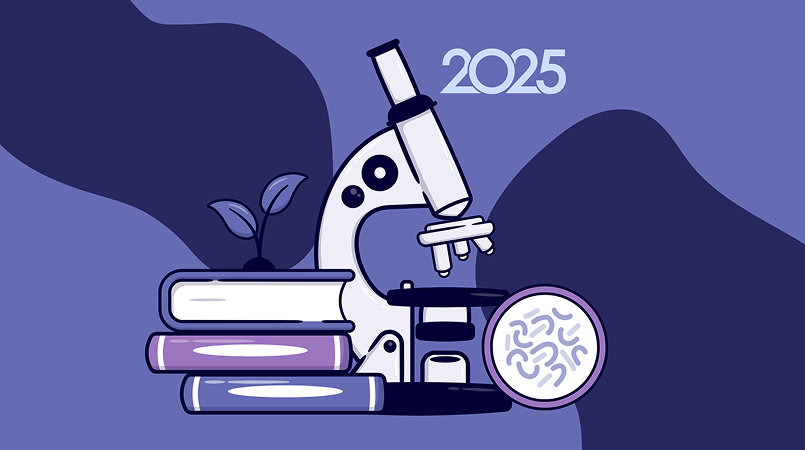NMT (National Multi-functional Test) in Biology is an important exam for applicants that is used for admission to higher education institutions. In 2025, the test structure and requirements may change, so establishing in Biology requires special attention. This guide will help you understand the specifics of the review, the program, and education strategies.
What is NMT in Biology and Who Needs It
NMT is a mandatory assessment for those planning to apply to faculties related to biology, medicine, and natural sciences. This test checks knowledge in basic topics, which are crucial for studying at universities and colleges. The review includes questions on biological molecules, cellular processes, genetics, ecology, and physiology, which allows assessing how well the applicant has mastered the theoretical foundations. Successfully passing is a necessary condition for applying to many specialized fields such as biology, ecology, medicine, pharmacy, and other areas that require in-depth knowledge of living systems.
Format and Structure of the Exam
The exam is a test consisting of several sections, each aimed at checking knowledge of theory and the ability to apply this knowledge in practice. It includes not only a theoretical part, where basic biology topics are tested, but also a practical part, with tasks that require a logical approach and analysis. Tasks in the assessment may be both closed (with multiple-choice answers) and open, where you need to provide detailed answers.
It is also important that the exam checks not only your ability to absorb theoretical information but also your ability to use this knowledge in real-life situations:
- Theoretical part with questions from various sections of biology.
- Practical part, which includes tasks aimed at checking the ability to solve real problems.
- Testing knowledge of biological terms and concepts.
NMT biology tests 2025 include questions from these sections and give you the opportunity not only to demonstrate your knowledge but also to apply it to solve practical problems.
Who Should Take the NMT in Biology
Applicants planning to study in the fields of biological sciences, medicine, ecology, agriculture, as well as in certain engineering faculties where knowledge of basic biology is required, must take the test.

NMT Biology Program 2025: What Is Included in the Test
The program in 2025 remains quite extensive and covers the main areas. The test will assess both general understanding of biological processes and specific areas such as genetics, ecology, and anatomy. Groundwork for the test in Biology requires good mastery of the entire program, as the assessment may include questions on both basic concepts and more complex topics. It is important to understand that the NMT may cover all areas, from molecular biology to ecology and physiology.
Main sections include:
- Biological molecules.
- Genetics and evolution.
- Ecology.
- Anatomy and human physiology.
- Virology and microbiology.
The NMT 2025 tests may be varied and will require flexibility in thinking and the ability to solve problems based on the theory learned in class.
How the Requirements Have Changed in 2025
In 2025, the requirements may be stricter. This is due to increased competition in biological and medical faculties. In addition to traditional questions, there may be new approaches to assessing knowledge and skills. To be prepared, you should study the Biology program and updates in exam documentation.
How to Prepare for the NMT in Biology: Effective Strategies
Groundwork for the NMT in Biology is a multi-task process that includes both independent work and help from qualified specialists. It is important to properly allocate your time and choose appropriate resources.
Independent Preparation: Textbooks, Resources, Simulators
Independent preparation requires effort and discipline from the applicant. For this, it is important to use trusted textbooks and simulators that will help you master the material and understand difficult questions. One such resource is TeMa, which provides access to online courses and simulators for preparation. These courses offer relevant materials for the NMT Biology 2025 tests, as well as answers to questions related to the review.
Courses and Tutors: When to Seek Help
If independent groundwork does not give the desired results, or you want to strengthen your knowledge, courses and mentors can help. This is a suitable option if you do not have time to study the entire volume of material independently. If you encounter difficulties and need to improve your knowledge, consulting a mentor can be very helpful.
This will help you overcome weak areas and prepare for the exam with maximum efficiency:
- If you can’t cover all the material in time.
- If you find some complex sections hard to understand.
- If you want to boost your confidence before the examination.
- If you need clarification on specific topics and concepts that raise doubts.
- If you can't solve all the tasks within the allotted time.
- If you need additional practice tasks to reinforce theory.
- If you find it hard to memorize biological terms and their meanings.
By enrolling in courses or consulting a tutor, you can establish more effectively for the NMT in Biology.

When to Hire a Biology Tutor?
Applicants often seek help from tutors when they realize they lack the knowledge or time for full education. A mentor can be helpful when independent preparation does not yield the desired results or when the applicant encounters difficulties in specific topics, such as genetics, ecology, or anatomy. It is also advisable to consult a tutor if you have limited time for preparation and need to quickly grasp key concepts or work through practice tasks. A tutor will not only explain difficult moments but also adjust the groundwork program, paying special attention to those sections that cause difficulties, and help you master the material effectively before the exam.
How to Choose a Good Tutor?
Choosing a tutor is an important step in the preparation process because the quality of training depends on the professionalism of the instructor. The tutor should not only have good experience but also be able to explain complex materials in an understandable way. It is also important that the tutor has experience preparing students for the NMT and can tailor the course to your individual needs. The more experience the mentor has, the easier it will be to measure, especially for difficult sections like genetics and anatomy.
You should also carefully examine the following aspects:
- Work experience and available recommendations.
- Specialization in education.
- Ability to personalize teaching based on your needs.
- Reviews from other students and successful cases.
Finding a good tutor is not always easy, but with TeMa, you will be able to find qualified specialists for personalized preparation.
Conclusion
Preparation requires a systematic approach, knowledge of current topics, and understanding of the assessment structure. It is important to pay attention to all aspects of education: independent work, using online resources, and, if necessary, consulting a mentor. If you need qualified help, don’t delay and register on the TeMa platform. We will help you effectively establish and achieve high results on the examination.


-preview.png)